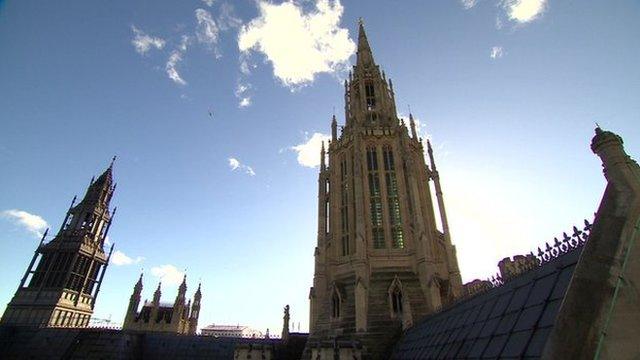House of Commons given low hygiene rating
- Published
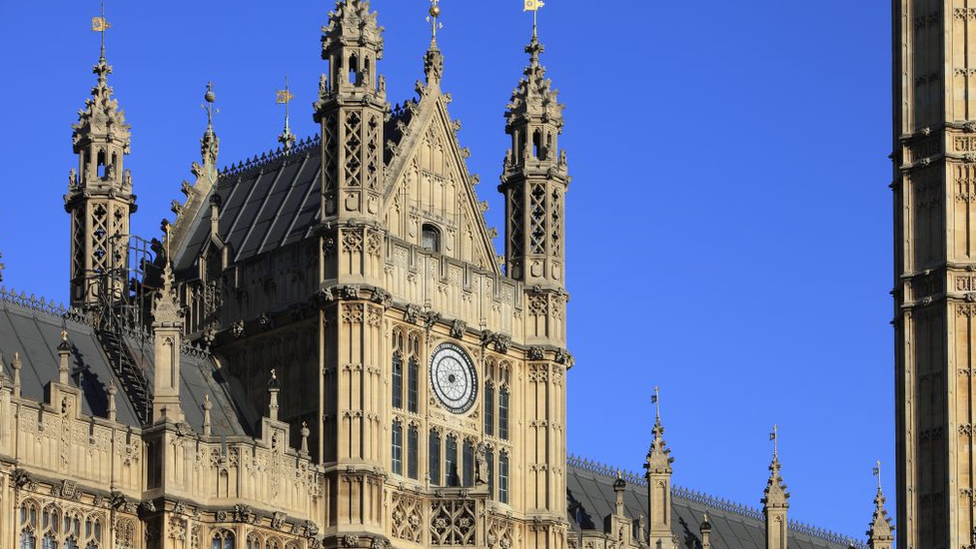
Inspectors said the House of Commons lacked "adequate daily cleaning"
The House of Commons has been given a low hygiene rating by Westminster City Council after mouse droppings were found in 19 different places.
Catering areas received a rating of two out of five, a freedom of information request sent by The Spectator revealed, external.
This comes after a 2014 report revealed previous issues with pests such as moths and flies.
Commons staff have now been asked to not store food in their offices.
Council inspectors found excrement in several areas including the Brasserie, the Terrace Cafeteria and the Members' Dining kitchen, when they visited last month, according to the Local Democracy Reporting Service.
Westminster City Council's report also said there was a lack of "adequate monitoring" and inspectors believed "thorough daily cleaning" was not regularly taking place.
Pest issues are not new to the Houses of Parliament, as the 2014 revealed.
It found that moths, mice, rats, flies, feral pigeons and herring gulls have all been known to cause issues at Westminster.
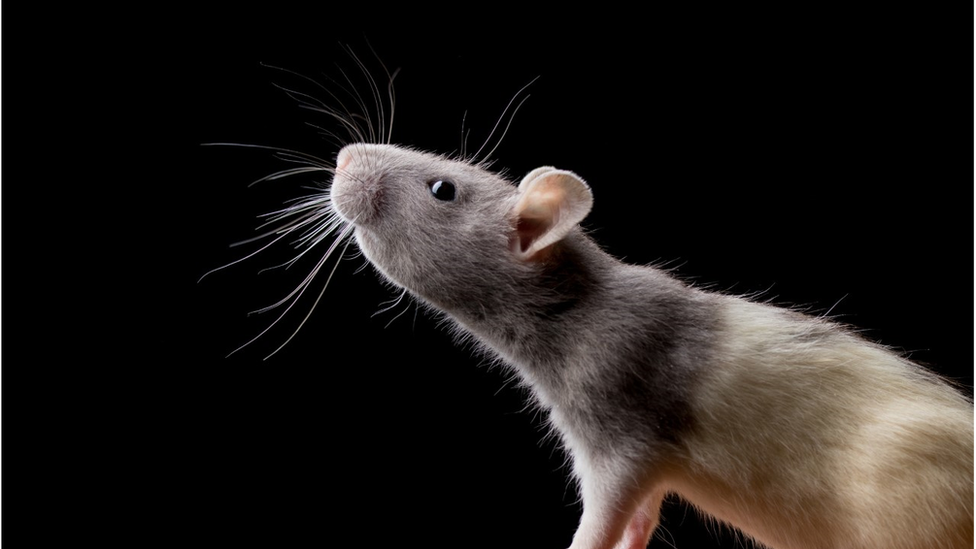
Mouse droppings were found in almost 20 different locations
According to the report, "controlling these pests is a major undertaking", and is conducted by a full-time pest control technician provided as part of the Houses' pest control contract and a contract for bird control.
Moths are a particular concern for some of Westminster's public collections, in particular the art collection.
The report added: "The Parliamentary Art Collection, which includes one of the largest collections of contemporary art textiles in public ownership, is also at significant risk from infestation.
"All [artworks] are irreplaceable, expensive to repair and it is more cost-effective to prevent this damage in the first place by controlling moth populations."
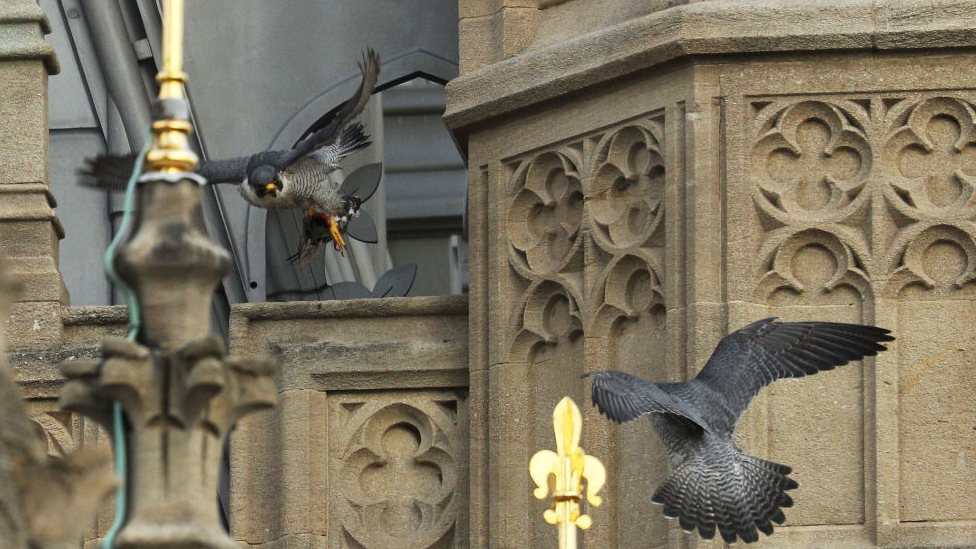
Birds of prey have been used to stop smaller birds damaging stonework
Parliamentary staff were also worried about mice chewing through electric cables, and spreading disease.
There have also been issues with birds causing damage to the Commons' stonework in the past.
To tackle this, birds of prey have been used to scare off other birds from nesting or feeding.
- Published3 January 2018
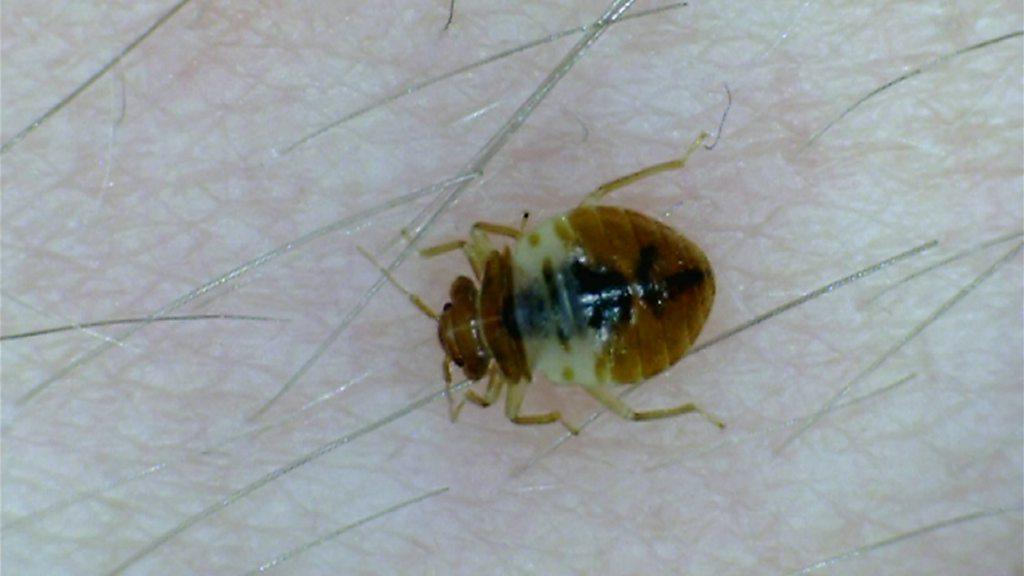
- Published16 November 2016
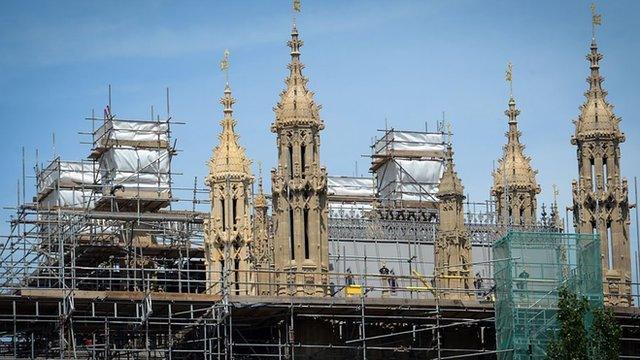
- Published16 December 2014
